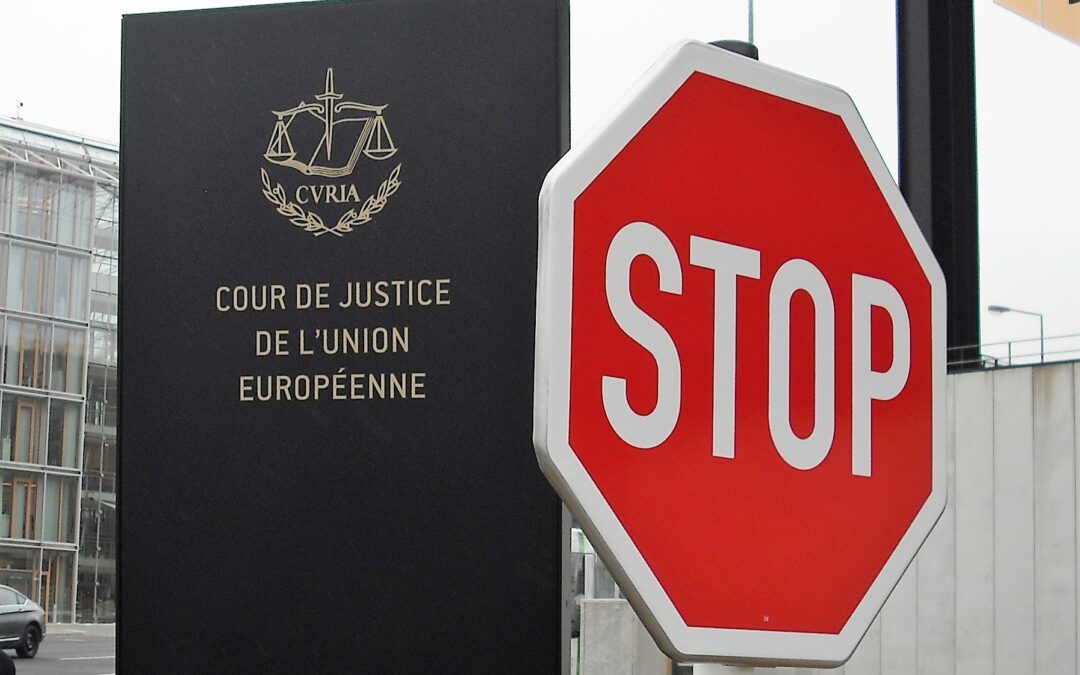Prosecutors in Warsaw have begun to gather information on whether judges from the Court of Justice of the European Union (CJEU) exceeded their powers when dealing with complaints against Poland.
Meanwhile, Poland’s National Council of the Judiciary (KRS) has prepared a resolution calling on the CJEU to “suspend activity until doubts as to its independence are resolved”. The KRS and prosecutors are seen as being under the influence of the Polish government, which has regularly clashed with Brussels.
The concerns of both the prosecutors and the KRS regarding the CJEU follow a report published in France’s Libération newspaper at the start of this month which found “a vast network of influence peddling and conflicts of interest” operating at the top of EU institutions.
The newspaper claimed that the network spanned the European Commission and CJEU, and involves mainly figures from the European People’s Party (EPP), the centre-right grouping that is the largest in the European Parliament.
A lire, mon enquête sur les conflits d’intérêts et trafic d’influence à Bruxelles et à Luxembourg https://t.co/8wafSxynve
— Jean Quatremer (@quatremer) December 3, 2021
The report has been seized upon by Poland’s justice ministry as evidence that the EU institutions which criticise Warsaw for violations of the rule of law are themselves bending or breaking the rules.
“The credibility of the CJEU and European Commission has been undermined by these reports,” wrote deputy justice minister Sebastian Kaleta.
The head of the ministry, Zbigniew Ziobro, last week wrote to commission chief Ursula von der Leyen warning that, if true, the practices identified in the reports “undermine the functioning of the EU”. He called on her to end her “silence” and urgently “clarify the matter”.
As well as being justice minister, Ziobro also serves as prosecutor general. Yesterday, Polish media reported that prosecutors in Warsaw had begun an investigation into “the exceeding of powers by judges of the CJEU in the course of examining complaints against Poland”.
What that means in practice, reports news website Onet, is that they want to ascertain whether CJEU judges can be held criminally responsible in Poland.
A spokeswoman for the district prosecutor’s office in Warsaw confirmed to the Polish Press Agency (PAP) that they have “received notifications of suspected crime in connection with a series of publications in Liberation about corruption in the CJEU” and are “analysing” the issue.
Separately, news website wPolityce – which is close to Poland’s ruling Law and Justice (PiS) party – published a draft it had obtained of a resolution prepared by the KRS, the body responsible for nominating judges in Poland.
The document “expresses deep concern” at the “disclosure by the European media of the corruption scandal involving judges and officials of the CJEU”. The “information suggests the CJEU does not respect the constitutional identity and sovereignty of the Member States” and “calls into question [its] compliance with European law”.
In the draft resolution, the KRS calls for a “thorough explanation” of the situation, and says that, in the meantime, “it is justified to suspend the activity of the CJEU until the doubts as to its independence are resolved”.
NASZ NEWS. Jest projekt uchwały KRS ws. afery w TSUE! Pojawia się postulat, by Trybunał wstrzymał swoją działalnośćhttps://t.co/udgHm8aI18
— wPolityce.pl (@wPolityce_pl) December 16, 2021
The Polish government has in recent years seen a number of European court rulings issued against it, often in relation to its overhaul of the judiciary, which a wide range of domestic and international bodies have found to violate the rule of law and undermine the independence of the courts.
Since early last month, Poland has been accruing daily fines of €1 million for failing to comply with a CJEU ruling ordering it to suspend its contested disciplinary chamber for judges.
The government, however, argues that other European institutions have overstepped their remit by attempting to “interfere” in Poland’s domestic judicial affairs. They also accuse the CJEU of imposing double standards in its harsh treatment of eastern member states compared to western ones.
Main image credit: Transparency International/Flickr (under CC BY-NC-ND 2.0)

Daniel Tilles is editor-in-chief of Notes from Poland. He has written on Polish affairs for a wide range of publications, including Foreign Policy, POLITICO Europe, EUobserver and Dziennik Gazeta Prawna.




















